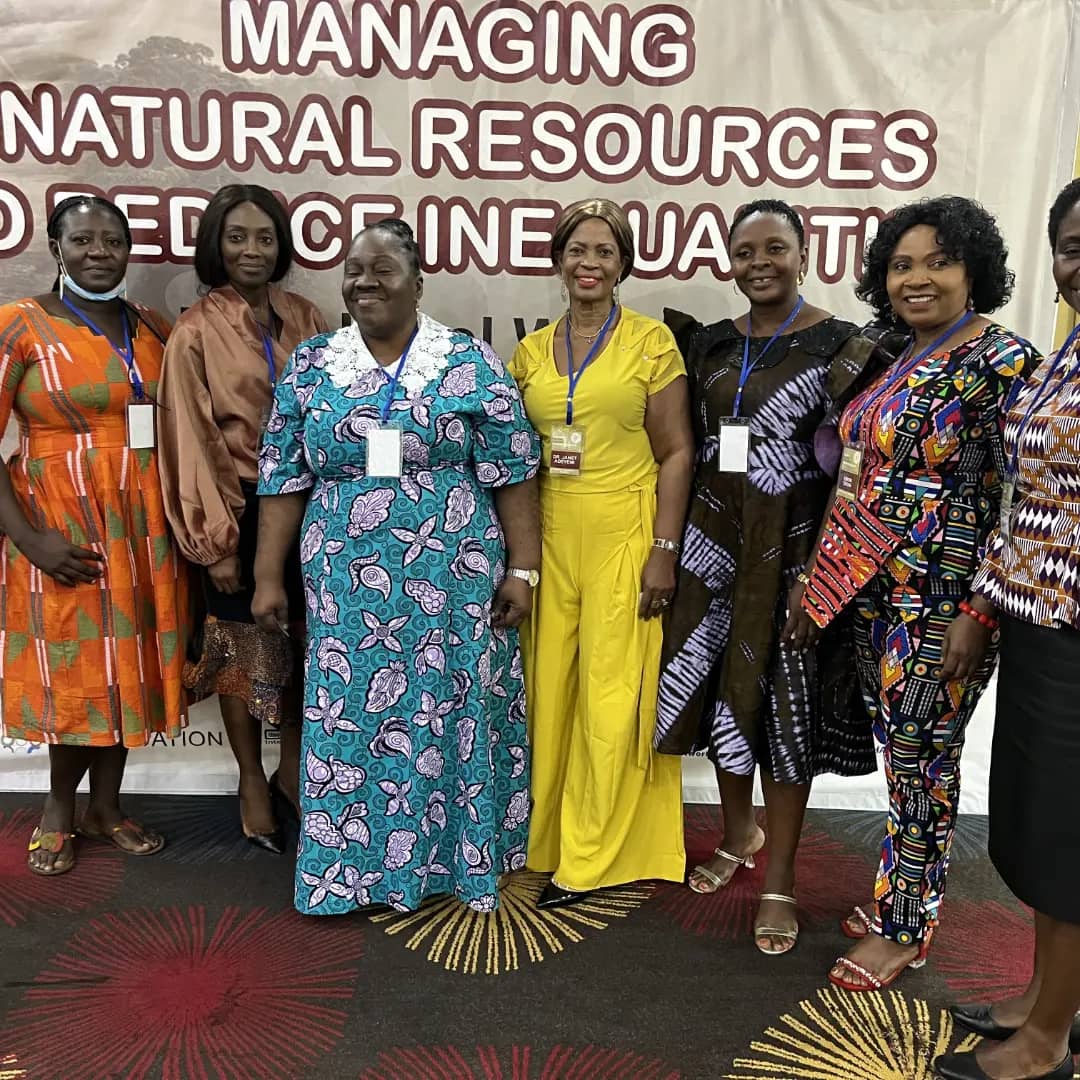
In a bid to create awareness on the relationship between inequalities and natural resource management, and find concrete solutions to the plight of marginalised populations in select West African jurisdictions, the Integrated Social Development Centre (ISODEC) held a high-level conference on 17th to 20th August 2022 to engage organisations and groups focused on protecting the interests of marginalised groups in the extractive industry
The conference, held in Accra, drew attendance from experts and individuals working in the natural resources space in West Africa, including Women in Mining Nigeria, Ghana and Sierra Leone; experts organisations organisations individuals from Nigeria including Global Rights, NEITI, Dr Dauda Garuba, the World Bank-assisted Mineral Sector Support for Academic Diversification (MinDiver), and a host of others.
Other bodies from Ghana, Sierra Leone and across the West African region were also on ground to brainstorm and share knowledge and experience to help chart a better course for the mining sector in particular, and the extractive industries in general. ISODEC is a non-governmental organisation based in Ghana and focused on addressing development inequalities and their impact on marginalized populations.
The four-day fully-packed event was organised to also seek better understanding and contribute to knowledge of the link between inequalities and natural resource management, as well as measures to enhance equitable and green development through efficient natural resource management in the West African region. The conference was also aimed at highlighting policy pathways for the attainment of Goal 10 of the Sustainable Development Goals through better natural resource management.
Furthermore, the event was put together to stimulate alliances, coalitions, and networking on commitment to addressing inequalities generally, and the role of natural resource governance in this endeavor and facilitate their sustained engagement on the issues beyond the conference through rotational annual convenings across the region, all in a bid to integrate the commitment to address inequalities in the work of existing civil society organizations (CSOs) in the extractives sector in West Africa.
Speaking on the sidelines of the conference, President of Women in Mining Nigeria, Engr. Janet Adeyemi observed that "the conference is a commendable initiative for its desire to ensure unification of natural resources' policies across West Africa in order to enhance linkages and deepened collaboration in the struggle to eliminate inequalities and discrimination against women, children and other disadvantaged populations".
Speaking further, Engr. Adeyemi noted that such platforms and events add momentum to the age-long advocacy by bodies like WIMIN in Nigeria and elsewhere towards ensuring women have a seat at the decision-making table, commensurate wages for their labour in the mines, as well as better welfare for women and their children working in the mining sites.
The Sustainable Development Goals (SDGs) provide a framework for which natural resources can be better utilised in a sustainable manner that benefits all of humanity both in the present and in the future. Goal number 10 which focuses on social and economic inequalities was at the core of the conference with the aim to bridge income gaps between groups, communities, and countries.
Recent studies have shown that the concentration of wealth and income across the globe has risen significantly in the last 40 years. In fact, a 2018 report by the World Inequality Report showed that the world's richest 1% held 27% of the world's wealth between 1980 and 2016 while the bottom half held only 12%. The situation is worse in Sub-Saharan Africa where at least 54% of the incomes of nations was held by only 10% of the population
Nigeria and other countries in West Africa represent some of the most male-dominated and unequal countries of the world. The rich-poor, men-women divide is one of the problems that Women in Mining has continued to tackle, especially in the mining industry. It is hoped that the conference serves as a launchpad for further conversations and regional collaborations to solve similar and peculiar problems facing marginalized populations like women in the management of natural resources.